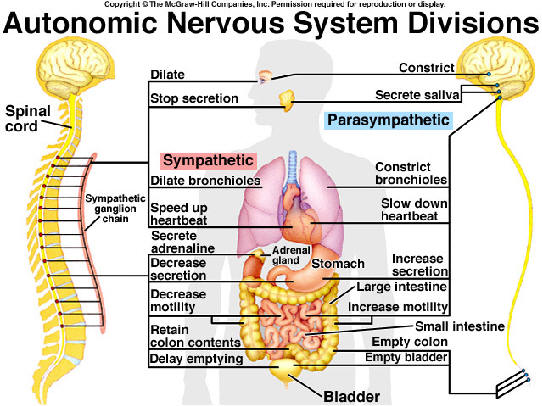The only organ with its own nervous system is the gut

The Only Organ with Its Own Nervous System is the Gut

Our body is incredibly complex, with various organs working together to keep us healthy and functioning optimally. While the brain is commonly regarded as the master control center, the gut possesses its own intricate and autonomous nervous system, known as the enteric nervous system (ENS). This lesser-known fact highlights the essential role the gut plays in our overall well-being.
The ENS, often referred to as the “second brain,” is a complex network of neurons embedded in the lining of the gastrointestinal tract. This network spans from the esophagus to the rectum, covering a distance of about nine meters. Comprised of over 100 million nerve cells, the ENS rivals the number of neurons found in the spinal cord.

The enteric nervous system is responsible for coordinating and regulating the processes involved in digestion. It controls contractions of the smooth muscle, enabling food to move through the gastrointestinal tract. Moreover, the ENS helps regulate blood flow, nutrient absorption, and the secretion of enzymes and hormones necessary for proper digestion.
Beyond its digestive functions, the ENS also communicates bidirectionally with the central nervous system (CNS), which consists of the brain and spinal cord. The gut-brain axis, a network of communication pathways between the gut and brain, allows for the exchange of signals and information. This bidirectional communication system means that the gut and brain constantly influence each other, affecting both physical and mental well-being.
Scientific studies have revealed a strong link between the gut and several conditions such as irritable bowel syndrome (IBS), inflammatory bowel disease (IBD), and even mental health disorders like anxiety and depression. These findings further emphasize the significance of the ENS in maintaining overall health.
The ENS is equipped with sensory neurons that can sense the type and amount of food in the gut. It can also detect the presence of harmful substances or pathogens, alerting the immune system to mount a defense. This ability to sense and react to different stimuli independently showcases the sophistication of the ENS.
To keep our gut and its “second brain” in optimal condition, we must prioritize our diet and lifestyle choices. Eating a balanced and nutritious diet, rich in fiber, supports a healthy gut microbiome and promotes the well-being of the enteric nervous system. Regular exercise also plays a crucial role in maintaining gut health, as it stimulates bowel movements and promotes efficient digestion.
In conclusion, the gut possesses its own intricate web of neurons, known as the enteric nervous system (ENS), making it the only organ with its own nervous system. This complex network enables the gut to independently control and regulate digestion, while also communicating bidirectionally with the central nervous system. The gut-brain axis highlights the significant influence the gut has on our physical and mental well-being. By prioritizing a healthy diet and lifestyle habits, we can ensure the optimal functioning of our “second brain.” So take care of your gut, and it will take care of you!
Tags
Share
Related Posts
Quick Links
Legal Stuff

